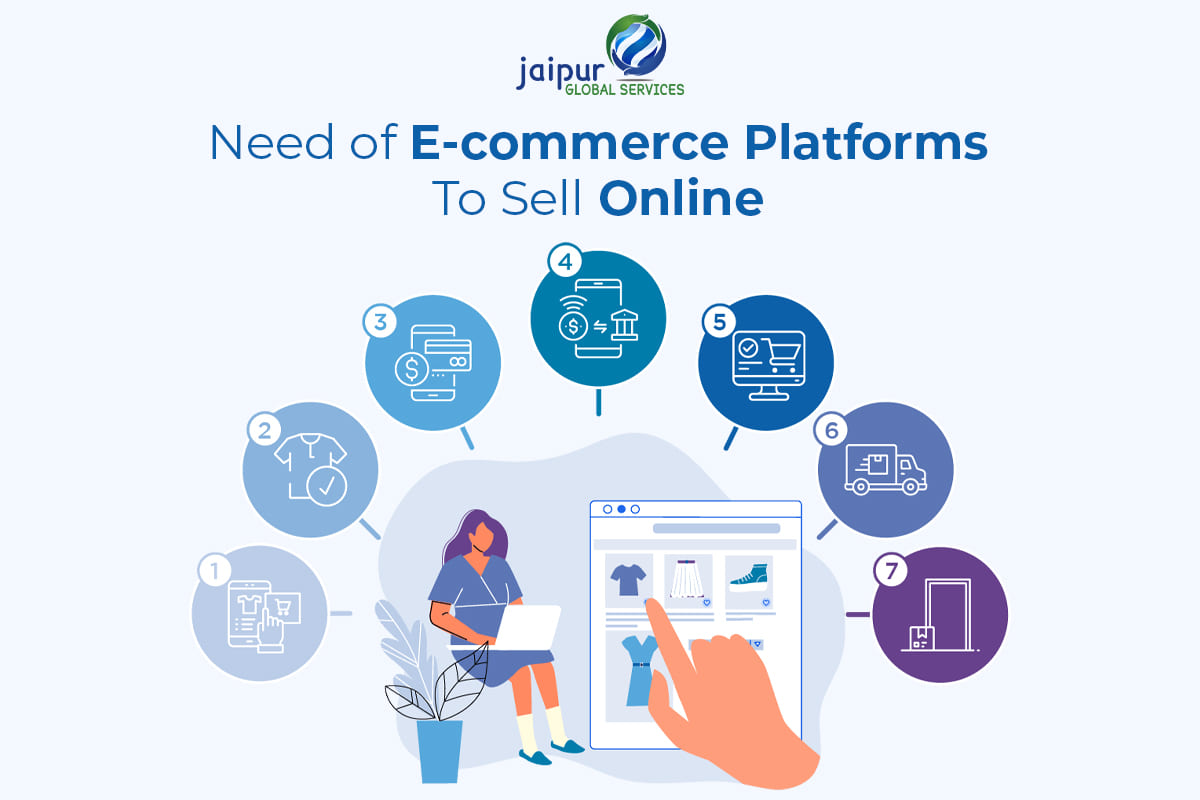
In today’s digital age, e-commerce has emerged as a popular and convenient way for businesses to sell their products and services online. E-commerce platforms have become an essential part of every business’s marketing and sales strategy. With the increasing demand for online shopping, businesses can’t do without e-commerce platforms. In this article, we will discuss the need for e-commerce platforms to sell online and why businesses can’t do without them.
Here are some reasons why:
1. Convenience and Accessibility
One of the main reasons why businesses need e-commerce platforms to sell online is the convenience and accessibility they offer. E-commerce platforms allow businesses to set up their online stores and sell their products to customers worldwide, 24/7. This means that businesses can reach out to a wider audience and sell their products at any time of the day, without the need for a physical store.
2. Cost-Effective
E-commerce platforms are also cost-effective compared to setting up a physical store. Setting up an online store requires minimal investment compared to a physical store. Businesses can save on rent, utilities, and other overheads associated with a physical store. E-commerce platforms also offer a range of pricing plans that businesses can choose from based on their budget and needs.
3. Increased Sales and Revenue
E-commerce platforms offer businesses an opportunity to increase their sales and revenue. With the increasing demand for online shopping, businesses can reach out to a wider audience and sell their products to customers worldwide. E-commerce platforms offer a range of features and tools that make it easier for businesses to manage their online stores and sell their products online.
4. Customer Data Collection
E-commerce platforms also offer businesses an opportunity to collect customer data. Businesses can collect data on their customer’s buying habits, preferences, and other important information that can be used to improve their marketing and sales strategy. E-commerce platforms also offer tools for businesses to analyze customer data and gain insights into their customers’ behavior.
5. Flexibility and Customization
E-commerce platforms offer businesses a range of customization options to customize their online stores according to their brand and business needs. Businesses can customize their online stores with their branding, logos, and other features that are important to their brand. E-commerce platforms also offer businesses the flexibility to add or remove products, change prices, and update their online stores based on customer feedback and demand.
6. Integration with Other Tools and Platforms
E-commerce platforms also offer businesses an opportunity to integrate their online stores with other tools and platforms. Businesses can integrate their online stores with social media platforms, email marketing tools, and other marketing and sales tools to increase their reach and sales.
Conclusion
In conclusion, e-commerce platforms have become an essential part of every business’s marketing and sales strategy. With the increasing demand for online shopping, businesses can’t do without e-commerce platforms. E-commerce platforms offer a range of benefits, including convenience and accessibility, cost-effectiveness, increased sales, and revenue, customer data collection, flexibility and customization, and integration with other tools and platforms.
Businesses can use e-commerce platforms to reach a wider audience, save money, collect customer data, and customize their online stores according to their brand and business needs. If you’re a business owner looking to sell your products or services online, consider using an e-commerce platform to take advantage of these benefits and grow your business.
